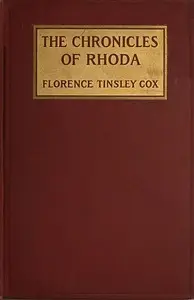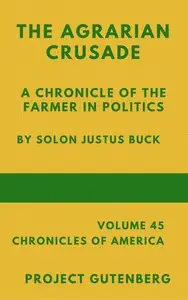"Rhoda Fleming — Volume 1" by George Meredith is a captivating story set in the Kent countryside, where two sisters, Rhoda and Dahlia, yearn for lives beyond their family's farm and the strict rules of their society. The novel opens by introducing the Fleming family, highlighting the contrasting personalities of Mrs. Fleming, a lover of gardening, and her hard-working farmer husband. The different ways they raise Rhoda and Dahlia shape the sisters' dreams of escaping to London and finding their own identities, even as they face the realities of their family's struggles, the whispers of their community, and their own desires. The scene is set for a journey filled with challenges and self-discovery, all woven into a world of social expectations and the desire for a better life.

Rhoda Fleming — Volume 1
By George Meredith
In the heart of the countryside, two sisters dare to dream of a life beyond their family farm, setting them on a path of ambition and self-discovery against the constraints of society.
Summary
About the AuthorGeorge Meredith was an English novelist and poet of the Victorian era. At first, his focus was poetry, influenced by John Keats among others, but Meredith gradually established a reputation as a novelist. The Ordeal of Richard Feverel (1859) briefly scandalised Victorian literary circles. Of his later novels, the most enduring is The Egoist (1879), though in his lifetime his greatest success was Diana of the Crossways (1885). His novels were innovative in their attention to characters' psychology, and also portrayed social change. His style, in both poetry and prose, was noted for its syntactic complexity; Oscar Wilde likened it to "chaos illumined by brilliant flashes of lightning". Meredith was an encourager of other novelists, as well as an influence on them; among those to benefit were Robert Louis Stevenson and George Gissing. Meredith was nominated for the Nobel Prize in Literature seven times.
George Meredith was an English novelist and poet of the Victorian era. At first, his focus was poetry, influenced by John Keats among others, but Meredith gradually established a reputation as a novelist. The Ordeal of Richard Feverel (1859) briefly scandalised Victorian literary circles. Of his later novels, the most enduring is The Egoist (1879), though in his lifetime his greatest success was Diana of the Crossways (1885). His novels were innovative in their attention to characters' psychology, and also portrayed social change. His style, in both poetry and prose, was noted for its syntactic complexity; Oscar Wilde likened it to "chaos illumined by brilliant flashes of lightning". Meredith was an encourager of other novelists, as well as an influence on them; among those to benefit were Robert Louis Stevenson and George Gissing. Meredith was nominated for the Nobel Prize in Literature seven times.



















